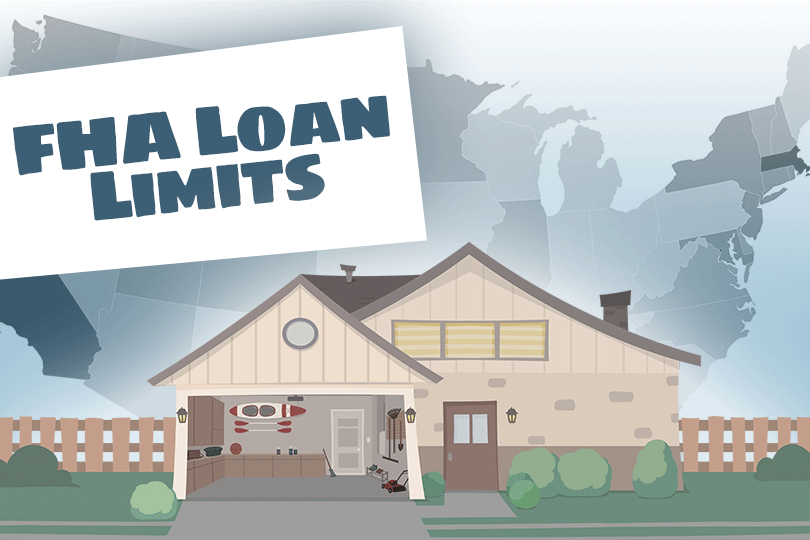Important Things to Know About FHA Lending Limits
September 17, 2022
Why Does the FHA Set Limits?
The reason for setting lending limits is straightforward; by placing a limit on how much an FHA lender loans to a borrower, they can manage the risk of the borrower defaulting on the loan.
The FHA’s goal is to help more families gain access to affordable housing. By backing approved lenders and allowing them to grant mortgages to low and moderate-income borrowers, the FHA is granting more homebuying opportunities where there were none previously. To continue growing the housing market, the FHA determines what it can afford to insure, and sets limits that borrowers must follow.
How Are FHA Limits Set?
FHA lending limits are updated annually and are determined according to the location of the home and property type, using a percentage of the national conforming loan limit, set by the Federal Housing Finance Agency (FHFA).
The FHA determines high-cost areas of the country based on income levels, construction costs, and housing demand. Heavily populated metropolitan areas have higher median home prices, which is why the FHA sets the limit at the higher end, also known as the “ceiling.” That ceiling is set at 150% of the national conforming loan limit. For counties with lower construction costs and income levels, the FHA sets a lower limit known as the “floor.” This limit is set at 65% of the conforming loan amount.
There are some counties in the U.S. that fall between the floor and ceiling. For these areas, the limit is equal to 115% of the median sale price of a home in the area. For example, if the median sale price in a particular market is $500,000, the loan limit would be (115% of $500,000) $575,000.
The FHA’s limits also vary based on property type. It insures loans to buy a duplex, triplex, or four-unit property if the borrower continues to live in one of the units. Taking this into account, there are separate FHA limits for all property types in every county.
What If I Exceed FHA Loan Limits?
Oftentimes, borrowers may find a home that they fall in love with, but one that costs more than the FHA will insure. In such cases, there are still options to stick with an FHA loan. If you can put down more than the minimum 3.5% on the house, you can buy a pricier home with the same FHA loan limit.
You also have the option of financing with an FHA Jumbo Loan, mortgages that exceed the FHA's county limit for home loans in each zip code. Since jumbo loans come with greater risk to the lender, the FHA has more stringent eligibility requirements for borrowers. The minimum credit score required to apply for an FHA Jumbo Loan is 600 instead of 580, and 640 for refinances.
The FHA also forbids applicants from using any assistance or gift funds for the 3.5% down payment, to ensure that borrowers have the finances to afford the large loan. An FHA Jumbo Loan might require two separate appraisals if the market is declining or the borrower is making a down payment of 5% or less. Borrowers should also note that FHA jumbo loans typically have higher interest rates than conventional jumbo loans.
If you are getting ready to purchase a home with an FHA loan, it is important to know just how much you can borrow. Visit our FHA Loan Limits page to find out the maximum loan amount in your county.

FHA Loan Articles
April 30, 2025 In a previous post, we discussed why FHA borrowers should carefully consider whether paying for discount points truly serves their best interests, focusing on factors like short-term homeownership, opportunity cost, FHA mortgage insurance, and the prevailing interest rate environment. Discount points are an option for borrowers willing to pay a fee to lower the interest rate by a set amount. This is not right for all borrowers, and you don't want to pay for points you won't benefit from during the loan term.
April 29, 2025Are you considering buying a home with an FHA loan? You'll likely talk to your participating lender about FHA loan "discount points" – fees you pay upfront for a lower interest rate on your mortgage. The idea behind discount points is a straightforward exchange: you spend money today to reduce your interest rate. Typically, one point equals one percent of your total FHA loan. In return, your interest rate might decrease by an amount you and the lender agree upon.
April 28, 2025Home loans have various expenses that aren't apparent to a new borrower until much later in the process. What do you need to consider when making your home loan budget? It might not be complete without addressing some of the issues we cover here.
April 23, 2025 While the prospect of lower interest rates or more favorable loan terms can be enticing, there are situations where waiting is the better option. Refinancing without carefully considering your current financial circumstances is never a good idea, but careful planning in the current financial environment is even more important.
April 22, 2025First-time home buyers worry about loan approval, but there are important steps to take to increase the likelihood that the lender will approve their application for the loan or pre-approval. What do you need to know before you choose a lender?







